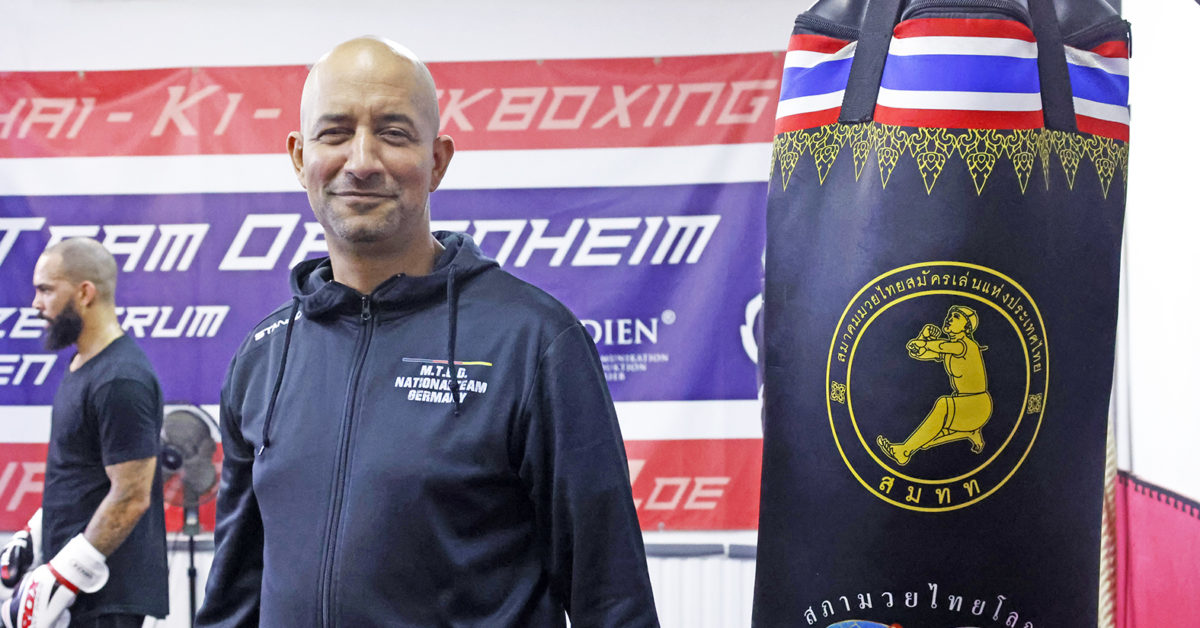You have to know and respect your counterpart’s point of view. But you must also always keep in mind what you want. In order to achieve this, you must always remain level-headed and focused – weigh it up, think about it. You won’t achieve anything with pressure. Because your counterpart will react with the same amount of pressure. That’s how you fail to achieve a result.”
What is Alexander Dibaba talking about right now? About his day-to-day work in the “European Customer Engagement Center”, where he finds solutions to issues that prove to be particularly challenging every day in conversation with Opel customers? Or about his private passion Muay Thai, also known as Thai boxing? “About both,” explains the 49-year-old. “The values that apply in my sport also apply to me in my job – and in life in general. And I do well with that.” He is convinced that Muay Thai is not only the cultivation of a cultural heritage that is over 3,000 years old, but first and foremost a form of character building.
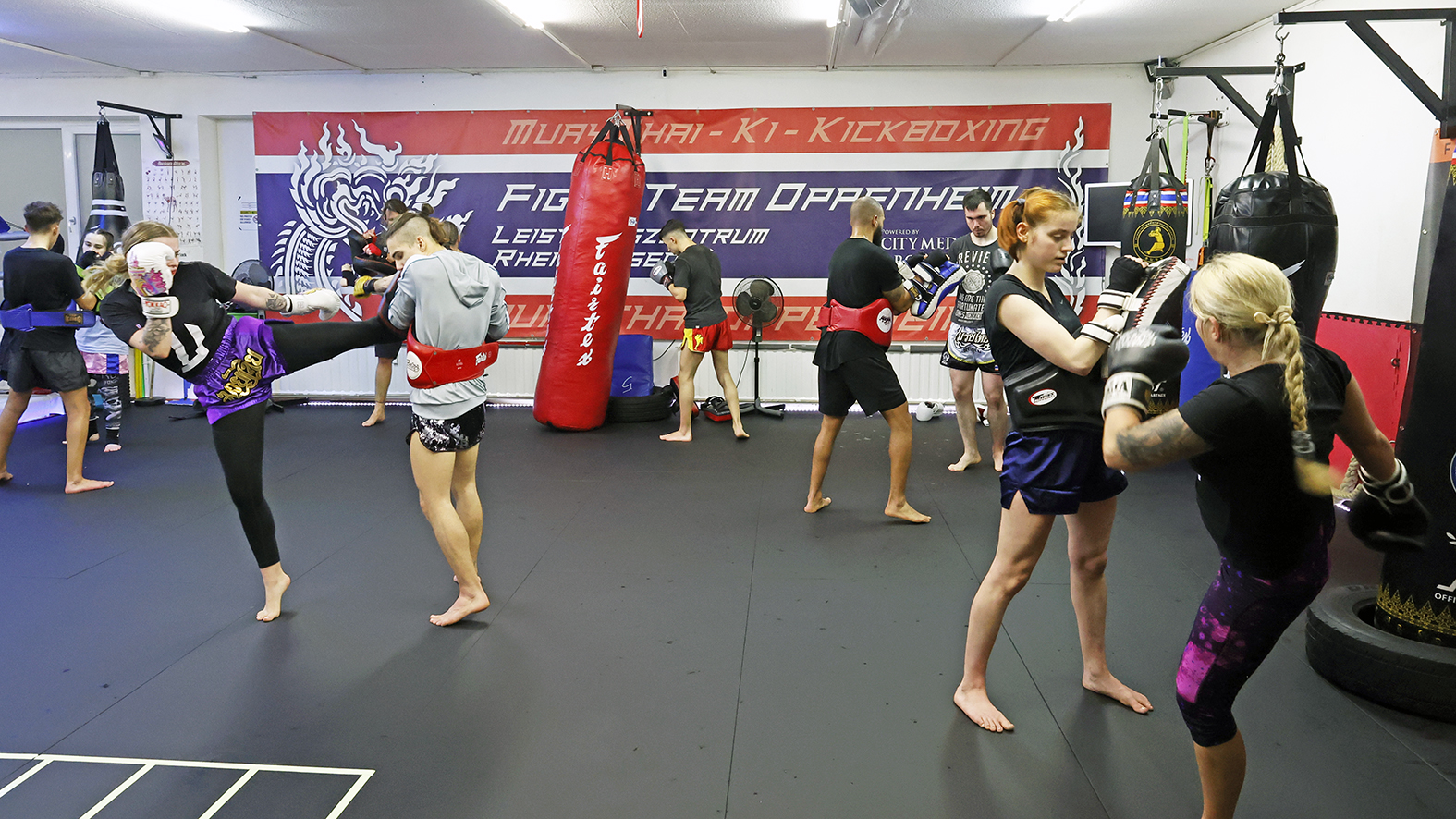
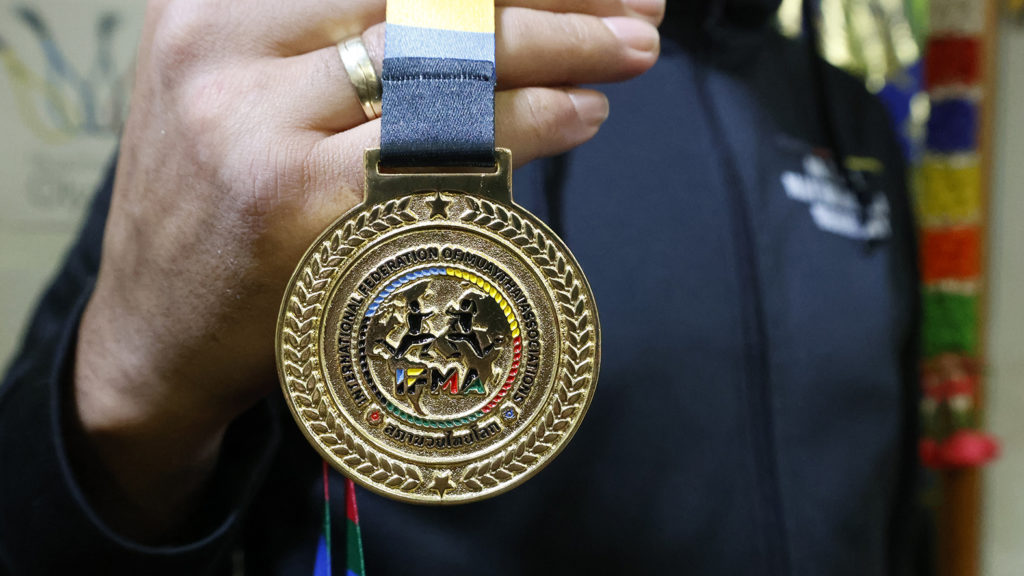
“Muay Thai is physically tough and at the same time characterised by the utmost respect and fairness.”
As he is speaking, battle cries constantly echo through the gym of the “Fight Team Oppenheim”. The competitive selection group is training. There are about 20 men and women, most of them still in the ‘junior’ age group. Paired up, they are battling each other with their feet and fists. A 15-year-old girl kicks her trainer’s left ear from a standing position. He is equipped with head and arm protection and shin guards. So this is what character building and customs cultivation looks like in fighting mode? “Yes, Muay Thai fighting is tough,” Dibaba confirms. Very tough. “Yet the risk of injury is no higher than in other martial arts,” he assures. Muay Thai stands out from these, as from pretty much every other competition, in a completely different way, namely in the way they treat each other.
Influenced by Buddhist teachings
Dibaba: “In our world you won’t find insults, referee abuse, coaches who flip out or rowdy spectators. Even if the fights are physically tough, the before and after are always characterised by respect and fairness. And anyone who is not prepared to recognise these principles has no place with us.” Because one should never forget: Muay Thai is part of the DNA of a country shaped by Buddhist teachings.
Alexander Dibaba was inspired by this spirit during a visit to Thailand in the mid-90s. Outstanding local instructors like Detlef Thürnau, now president of the Muay Thai Bund Deutschland, also did their part. Since then, the Opel employee has also been fighting for recognition of his sport and the associated philosophy in and outside the ring. All over the world, but on his own doorstep.
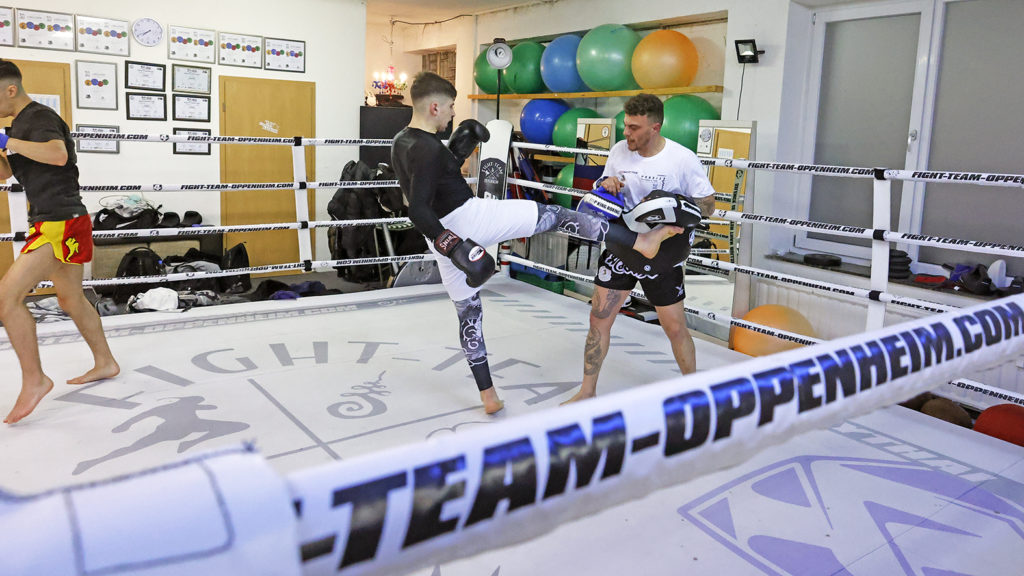
Siamese popular sport becomes Olympic
Muay Thai is one of the oldest and toughest martial arts. In Thailand, it is the national sport, comparable in popularity to football in Germany. The discipline is also called the “art of eight limbs”, as one fights with both fists, elbows, knees and shins. As in boxing, the fight is decided by the referee, and more difficult techniques bring more points. However, these require enormous preparation, precision and fitness. Therefore, the training is also very intensive. The sport is now widespread throughout the world, and there are Muay Thai athletes in almost 130 countries. According to its information, the German Muay Thai Federation has 2,000 members. Last summer, the International Olympic Committee recognised Muay Thai as an Olympic discipline. The competitions are expected to become part of the Olympic programme in Paris in 2024.
“Our sport is now an Olympic discipline – a distinction.”
A decade and a half ago, after he had moved to Rheinhessen to start a family, he asked the sports club TV Oppenheim if he could start a Muay Thai section with five or six like-minded people. Yes, he could. Today, the “Fight Team Oppenheim” consists of over 80 members – the result of Dibaba’s enthusiasm, which is as strong as ever. Since 2013, the Fight Team has been training in its own hall, which it also manages and maintains. Here, in the national and federal training centre, the Thai fighters get fit for international championships. Since 2019, Muay Thai has even been an Olympic discipline. “That was the distinction for us,” says Alexander Dibaba happily. “Now we are finally on an equal footing with the others. And it’s easier to get subsidies and find sponsors.”
Chasing the title in Venice
The Fight Team’s next big goal is the European Championships in Venice next year. Alexander Dibaba wants to present adult and junior fighters who are strong enough to win titles. But he is also keen to get young people interested in the sport. In the summer, he gives workshops at local schools. He himself now acts as team manager of the German national team and is vice president of the German Muay Thai Federation.
The work behind all this not only takes effort, but also devours money. Nevertheless, one of the head coach’s main concerns remains keeping Fight Team membership fees affordable. “And for those who don’t have any money but are willing to perform, we will find a solution,” promises the family man, whose daughter Zoe is successful as a judoka. Because: “Especially in these times, sport has to offer young people something so that they don’t isolate themselves in this corona pandemic tristesse.” And of course Alexander Dibaba and his team of trainers also support the “Muay Thai against Drugs” project, which combines sport and addiction prevention. And conveys the very values that form the basis of his trade not only in the ring but also in his profession.
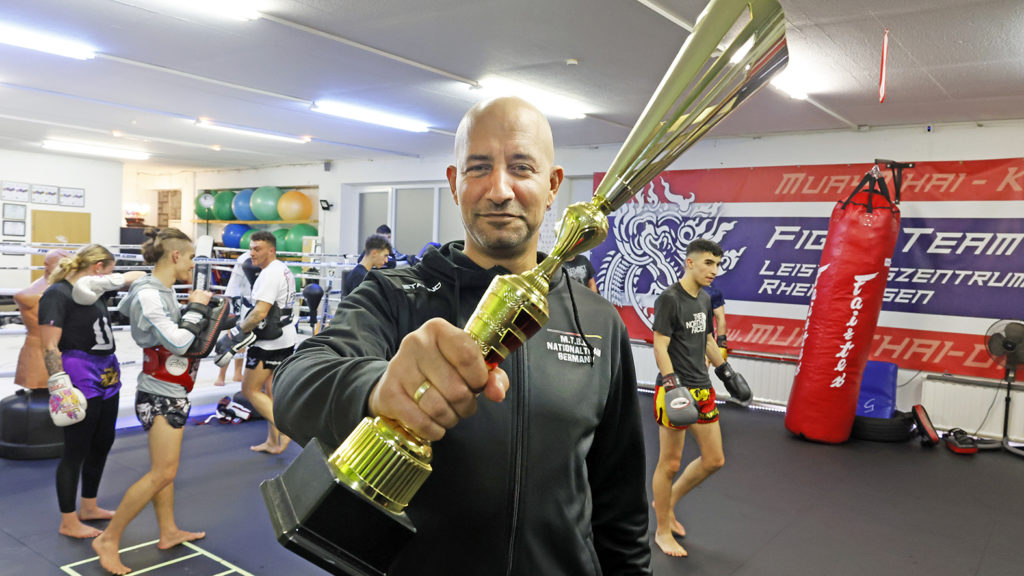
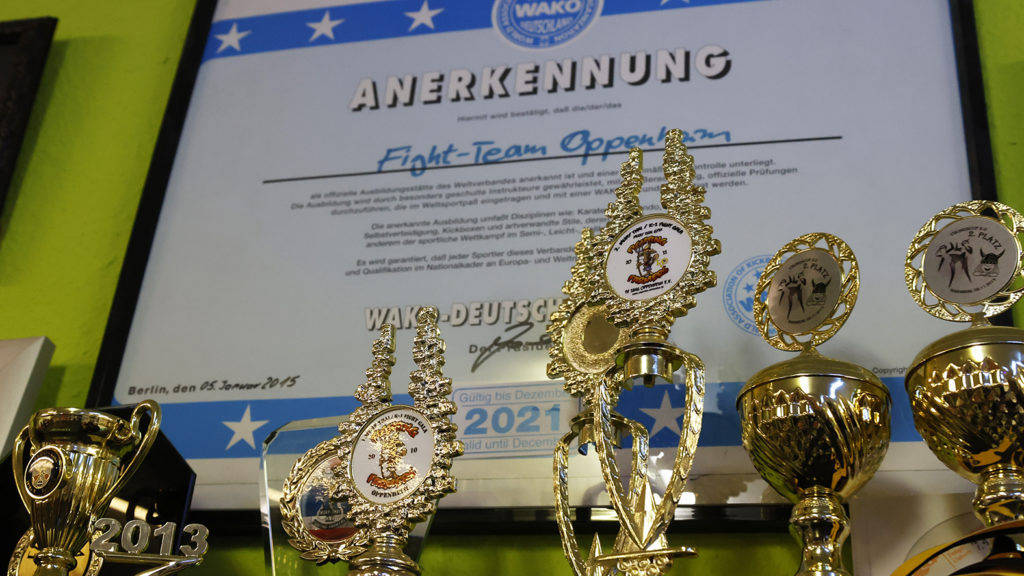
“I treat Opel customers with the tenets of Muay Thai – fairness and respect.”
In the extended customer service of Opel’s “European Customer Engagement Center”, Opel’s Directorate Service, Alexander Dibaba is responsible for the complex and tricky enquiries from Opel customers and requests to the management. The tough cases that are not so easy to resolve. But no matter how difficult the initial situation is, the goal is to make the customers happy, he says. “In doing so, I treat Opel customers with the tenets of Muay Thai – fairness and respect,” he explains. For example, customers who own vehicles with special conversions like taxi drivers get in touch for assistance. Especially for special conversions, some parts are hard to come by, but Alexander Dibaba and his colleagues almost always find a solution.
From attention to rear window
For example, the team helped a taxi entrepreneur from Stuttgart with a spare part, who then switched his entire fleet to Opels, “simply because our service convinced him,” says Dibaba, citing one example. Another is that of a vintage car lover who had been looking for a rear window for his Opel Admiral for several years – “we then found one for him in Sweden”. Sometimes it’s just little things, “but customers appreciate it when they get attention – and rightly so.” And Alexander Dibaba appreciates his work: “Every day I can change something for the better and help turn Opel drivers into loyal customers of the brand.” Alexander Dibaba’s fighter’s heart beats with conviction – for the brand with the Blitz and for the Thai martial art with respect.
March 2022
